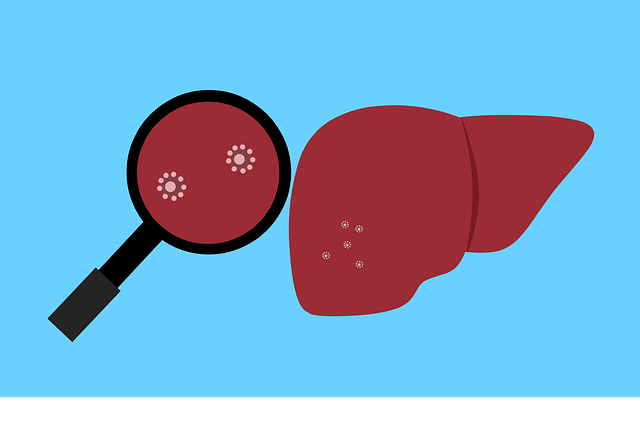The Hepatitis C virus (HCV) is the virus that causes hepatitis C. It mostly affects the liver, resulting in inflammation and possibly long-term, significant liver damage. Contact with contaminated blood can spread the virus. The most common ways that this happens are when injection drug users share needles, when contaminated blood is given during transfusions or organ transplants, or through less common channels like needlestick injuries in medical facilities or transmission from an infected mother to her unborn child during childbirth.
I. Symptoms
When HCV is present, the following symptoms might occur:
- Dark urine
- Fatigue
- Fever
- Itching
- Jaundice
- Pain in the right upper abdomen.
- Abdominal swelling due to fluid (ascites)
- Clay-colored or pale stools
II. Transmission
The hepatitis C virus (HCV) is the source of C hepatitis, a liver illness. Coming into contact with blood from an infected individual can spread C hepatitis. Nowadays, sharing needles or other items used to manufacture and inject drugs is how most people contract the hepatitis virus.
III. Treatment
It is treated with antiviral drugs such as daclatasvir and sofosbuvir. Some infections can be treated spontaneously by the immune system, and new infections do not always require medical attention. Treatment for persistent that hepatitis is always required.
IV. Hepatitis c vaccine
That type Hepatitis cannot be prevented by vaccination. The strongest defense against hepatitis C is abstaining from actions that can transfer the infection, such as drug injection. It is crucial to get diagnosed for C hepatitis because most cases can be resolved with therapy in eight to twelve weeks.
V. Causes
The hepatitis C virus (HCV) is the caused by that hepatitis, a liver illness. Coming into contact with blood from an infected individual can spread that hepatitis. Nowadays, sharing needles or other items used to manufacture and inject drugs is how most people contract the hepatitis virus.
VI. Hepatitis c antibody
The HB virus antibody test, often known as the anti-HCV test, searches blood for antibodies to the virus. Chemicals called antibodies are sent into the circulation as a result of infection. Receiving test results could take anything from a few days to several weeks.
VII. Hepatitis c icd 10
It is caused by an unknown virus without hepatic coma
ICD-10-CM code B19. 20 is a billable/specific code that can be used to identify a diagnosis for insurance purposes.
VIII. Hepatitis c cure
Tablets called direct-acting antivirals (DAAs) are used to treat C hepatitis. The safest and best medications for treating C hepatitis are DAA pills. Over 90% of patients find them to be quite efficient in curing the condition. The 8 to 12 week course of pills is taken.
IX. Hepatitis c virus
The HC virus (HCV) is the source of C hepatitis, a liver illness. Coming into contact with blood from an infected individual can spread this hepatitis. Nowadays, sharing needles or other items used to manufacture and inject drugs is how most people contract the C hepatitis virus.
X. Symptoms in male
Yellow skin or eyes, nausea, upset stomach, vomiting, stomach pain, fever, dark urine, light-colored feces, joint pain, and fatigue are some of the symptoms that may appear. When symptoms arise from a fresh infection, they typically manifest in two to twelve weeks, although they may take up to six months to materialize.
XI. Hepatitis c screening
An individual’s blood antibody to HCV (anti-HCV) level is used to screen for that hepatitis. A positive test (antibody detection) just shows that a person has been exposed to C hepatitis in the past; it does not diagnose the illness.
XII. Treatment guidelines
Certainly, here are 10 treatment guidelines without explanations:
- Screen individuals at risk.
- Confirm diagnosis with serological and nucleic acid testing.
- Assess liver disease severity.
- Initiate treatment for all patients.
- Choose treatment regimen based on factors.
- Prefer direct-acting antiviral therapy.
- Monitor HCV RNA levels and liver function.
- Provide adherence support.
- Schedule regular follow-up appointments.
- Educate on prevention of reinfection.
XIII. Hepatitis c rash
The majority of hepatitis effected patients get crippling rashes. Jaundice, porphyria cutanea tarda, lichen planus, necrolytic acral erythema, leukocytoclastic vasculitis, and urticaria are among the several skin symptoms. Treating the C hepatitis virus is the best strategy to reduce a C hepatitis rash.
XIV. Medication
- Ribavirin (Copegus, Rebetol, Ribasphere)
- Sofosbuvir (Sovaldi)
- Sofosbuvir-Velpatasvir (Epclusa)
- Elbasvir-Grazoprevir (Zepatier)
- Glecaprevir-Pibrentasvir (Mavyret)
- Ledipasvir-Sofosbuvir (Harvoni)
XV. Hepatitis C curable
The WHO advises therapy with pan-genotypic direct-acting antivirals (DAAs) for all adults, adolescents, and children under the age of three who have chronic hepatitis infection. Many people can be cured of hepatitis infection and lead healthy lives with correct treatment.
Patient Diet and Recommendations:
| Food Group | Recommendations |
|---|---|
| Fruits | Opt for fresh fruits rich in vitamin C and fiber. Avoid citrus fruits if they worsen symptoms. |
| Vegetables | Consume a variety of colorful vegetables, especially leafy greens and cruciferous veggies. |
| Protein | Choose lean sources such as poultry, fish, tofu, legumes, and nuts. Limit red meat intake. |
| Dairy | Opt for low-fat dairy products like yogurt and skim milk. Avoid high-fat cheeses and creams. |
| Whole Grains | Include whole grains like brown rice, quinoa, oats, and whole wheat bread for fiber. |
| Healthy Fats | Incorporate sources like avocados, olive oil, nuts, and seeds in moderation. |
| Fluids | Stay hydrated with water, herbal teas, and fresh juices. Limit sugary beverages and alcohol. |
| Precautions | Practice good hygiene, including washing hands frequently. Avoid sharing personal items like razors or toothbrushes. Practice safe sex to prevent transmission. Get vaccinated for hepatitis A and B if not already done. Follow medical advice regarding medication and treatment. |
Note: It’s crucial for hepatitis C patients to consult with healthcare providers or nutritionists for personalized dietary recommendations based on their specific health condition and medical history.
FAQS
1. Can hepatitis C be spread through saliva?
No, hepatitis C is not typically spread through saliva. It’s primarily transmitted through blood-to-blood contact, such as sharing needles or other drug paraphernalia, or through poorly sterilized medical equipment.
2. When is hepatitis C chronic?
Hepatitis C becomes chronic when the virus remains in the body for six months or longer. Chronic hepatitis C can lead to liver damage over time, increasing the risk of serious complications such as cirrhosis or liver cancer if left untreated.
How much blood is needed to transmit hepatitis C?
It only takes a very small amount of infected blood, even as little as a drop, to transmit hepatitis C. This can occur through sharing needles, receiving contaminated blood transfusions or organ transplants, or even through sharing personal items like razors or toothbrushes that may have blood on them.
4. What hepatitis c does to your body?
Hepatitis C primarily affects the liver, causing inflammation, scarring, and potentially leading to cirrhosis, liver failure, or liver cancer if left untreated.
5. How do you get hepatitis c?
Hepatitis C is mainly spread through blood-to-blood contact, such as sharing needles or other drug paraphernalia, receiving contaminated blood transfusions or organ transplants, or sharing personal items like razors or toothbrushes with infected individuals.



